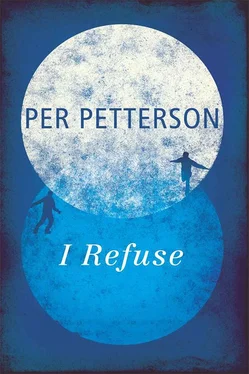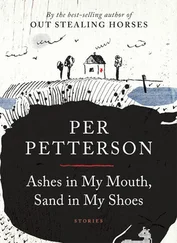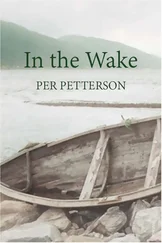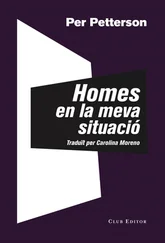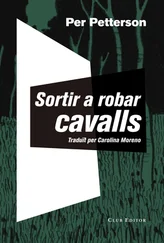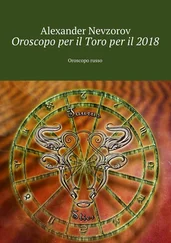‘Jesus, have we been waiting for you,’ he said, ‘just follow me,’ and I did. We went down one flight of stairs and along a corridor with grey doors on either side, like in a bunker, a sorry sight, and he unlocked one of those doors, and inside my father was lying on his side on a thin foam mattress with a blue plastic cover. I knew it was him because they had said it was him, but I wouldn’t have recognised him in the street. I would have walked straight past. He had tucked his feet up underneath him, and in the striped socks they looked like a child’s feet. But it was an old man lying there. His hair was long, and his beard long, and he was grey all over, his clothes were grey with grey stains on them, and the shrill light from the naked bulb under the ceiling struck his open staring eyes and flowed into them and was gone. You wouldn’t call it a reading light, you couldn’t read in that light, and my father had liked to read, Westerns, Zane Grey, that kind of book. He read them late at night when I was in bed, and in the morning they lay open on the table, the spine in the air, and one was called The Thundering Herd , and another was The Buffalo Hunter and some had nice drawings on the jacket and others had golden hooves engraved in the light blue covers, and the ashtray was full to the brim with cigarette butts and the house was full to the rafters with smoke, it was seeping through each and every crack and you could smell it all over the house, even in the deep of the bathroom you could feel the smoke from his cigarettes, but you couldn’t read a book in this cell, you could barely brush your teeth. It was all cold and smooth, the shiny walls painted a yellowy cream colour or more like caffè latte, that kind of colour, but not in an attractive way, and there wasn’t a splinter of wood to be seen, no panelling, no skirting boards, nothing. The floor sloped inwards from both sides so any fluid you could think of would run in only one direction. In the corner there was a polished steel funnel cemented into the floor with a platform for your feet on either side, and there my father could go to the toilet when he needed to, but when you saw the thin, grey man on the thin, blue mattress with his child-like feet drawn up under him, it was hard to imagine that he would be able to squat over that hole, and as hard to imagine that the body of the man lying there was my father’s body.
‘What a place to put him.’
‘He didn’t come quietly,’ the policeman said.
‘He’s just a thin, old man.’
‘You should have seen him fighting.’
Then my father suddenly woke from his torpor and rose through the layers of floating space where he had found himself for a few hours and staggered to his feet, and as he straightened up his trousers fell down, because they had taken his belt, and they fell from his skinny hips like an empty sack to the floor, and he made a grab for them and caught them by his knees and behind his unkempt beard he smiled such an enthusiastic smile and said, but isn’t it Tommy, isn’t that my boy, he said, and he turned and said to the policeman, that’s Tommy, that’s my boy, he said, that’s my son, but he couldn’t disentangle his trousers. They got caught around his knobbly knees and hung there from halfway up his thighs and refused to fall down to his striped socks or to go up his hips, and he just stood still, unable to let go of his trousers and unable to move without tripping, or else he would have given me that bear hug I didn’t want at any price. That’s how he looked, as though it was the very thing he wanted to do and was on his way over, and it embarrassed me that he didn’t blush or feel any shame over his stupid trousers or the way he appeared in front of a son he hadn’t seen for so many years, but as far as I could tell, there was not a scrap of shame on his face, only this meaningless, indecent enthusiasm.
It all went quiet. He stood with his hand clenched white with expectation around the top of his trousers. What should I do now. And the policeman was waiting. I couldn’t even hear him breathing. He looked up at the ceiling to leave us in peace during this embarrassing moment between father and son, and he tried to make himself invisible, inaudible, but I didn’t want to be left in peace with my father. I didn’t want to be there at all. And yet I couldn’t leave without him. Anything else was too late.
‘Fine,’ I said. ‘Come on. I’ll drive you home,’ and I heard the policeman slowly let out his breath, and my father put on a broad smile from behind his beard and said:
‘What a fine coat you’ve got, I’ll give you that. It has style. I’ll bet it cost you serious money.’
‘Yes, it did cost serious money,’ I said, and turned and walked out of the cell, and my father came out after me, clutching his trousers and then the policeman locked the door behind us. We walked down the corridor and into another room where his possessions were returned to him, and, because his hands were shaking so badly, I had to sign for each item as he was unable to do it himself, and for his shoes and his belt I had to sign, and for what was left in his wallet, and the pocket knife, I think we’d better hang on to that, the policeman said, and I said, that’s fine, just keep it, and then I signed for the jacket. I could have sworn it was the same jacket he was wearing the last time I saw him by the railway station only two hundred metres from this large house that didn’t exist then, in front of the old, heavy, stone-grey station building, and not the modern one that was put up beside it.
The policeman let us out of a door at the back of the building. Then we didn’t have to push our way through the crowd with their passports and tickets and A4 police checks, and I could see my father was limping on his right leg as we crossed the first car park and then the second one over to my new, grey Mercedes with the tinted windscreen, and he said:
‘Oh, what a car, it’s nice, and the coat, and the car, it must have cost serious money, that car,’ and I said:
‘Yes, sure, it cost serious money.’
‘But I can’t sit in that car with these clothes on,’ he said, and I looked at his clothes, and he did have a point.
‘Just get in,’ I said, and he opened the door at the back, and I said:
‘No, you sit in the front.’
‘Ah, but, I can’t, can I.’
‘Yes you can, for God’s sake, just sit in the goddamn front, come on, you cannot sit in the back. Jesus Christ.’ And very carefully he sat down in the front, trying as hard as he could to leave a thin layer of air between his backside and the fragrant, immaculate leather cover I had taken the plastic off only a few days ago. Then we turned out of the car park in front of the building they called Justisen, and I left Lillestrøm the same way I had come and drove up the E6 and past the turn-offs to both this place and that place and all the places I couldn’t give a damn about or who lived there and on up past Mørk station.
I turned into the drive of the house he claimed was his. I had never seen it before. It was north of Mørk, and a little to the west, and the railway line wasn’t even close and never had been. The bus stop was a kilometre’s walk, and there was only one bus a day, except at weekends when there was no bus at all. That was the kind of place it was, meaningful only for those who lived there, and barely that. I had cycled past with Jim a couple of times in my childhood to go fishing in a little river even further to the west. There was a waterfall and a pool with good fishing. It was Jim who liked fishing, but I always went along, he was my best friend, so at Christmas I wished for a rod with a spinner and all, and Jonsen gave me one, he was the one who listened, and no one else. And then the local council got it into their heads to build a dam, and the waterfall stopped falling, and we stopped going there. We didn’t care, there were other places we could go.
Читать дальше
